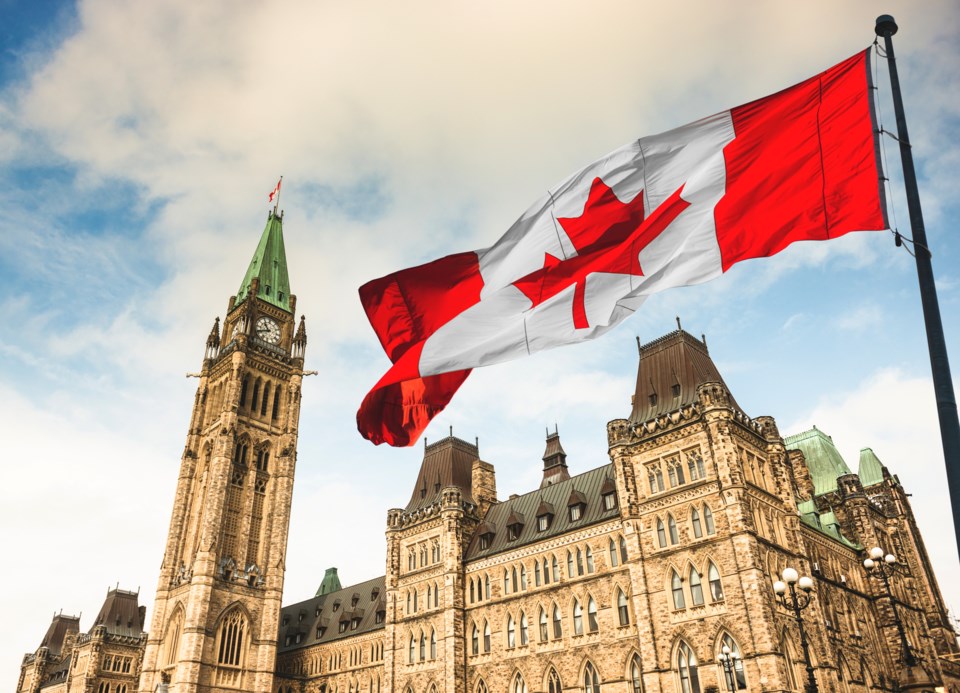Our annual look at the institutions and features that elicit feelings of pride among Canadians has gone through some remarkable changes over the years. In 2024, the numbers accurately depict a country that is becoming increasingly upset with the status quo.
Three of the items on our list are still regarded as sources of pride by more than seven in 10 Canadians: the Canadian flag (82 per cent, up two points since 2023), the Canadian Armed Forces (72 per cent, up two points) and hockey (71 per cent, down one point).
In each of them, as has been the case for the past few iterations of the survey, positive feelings are significantly higher among Canadians aged 55 and over.
A second tier shows a decline for two aspects of our country that have been repeatedly linked to previous and current Liberal Party governments: multiculturalism (65 per cent, down nine points) and bilingualism (58 per cent, down six points). This time, Canadians aged 35-54 and aged 55 and over are not as proud as their counterparts aged 18-34.
We also see a drop in feelings of pride related to Indigenous culture (63 per cent, down three points) and the state of democracy in Canada (55 per cent, down six points).
Our recent research has uncovered growing skepticism from Canadians aged 35-54 on issues like health care and immigration. After years of what seemed like constant bickering between millennials and baby boomers on housing and affordability, Generation X is emerging as a block of voters dissatisfied with how our decision-makers are chosen.
Only 50 per cent of Canadians aged 35-54 are proud of the state of democracy in the country, compared to 57 per cent for those aged 55 and over and 58 per cent for those aged 18-34.
At the national level, Canadians are also less proud today about the health-care system (48 per cent, down four points) and the justice system (also 48 per cent, down two points).
Only in Quebec and Ontario (at 56 per cent and 54 per cent, respectively) do we see most residents expressing feelings of pride about the justice system.
On health care, the regional fluctuations are extreme. Ontario leads with 57 per cent, followed by British Columbia at 52 per cent and Alberta at 50 per cent. The proportions are lower in Quebec (46 per cent), Saskatchewan and Manitoba (34 per cent), and Atlantic Canada (28 per cent).
Our views on federal politicians have also become more negative in 2024, with 38 per cent of Canadians (down seven point) saying they are proud of Parliament. As expected, Liberal voters in 2021 are more buoyant about this institution (58 per cent) than those who cast ballots for the New Democratic Party (NDP) (43 per cent) or the Conservative Party (28 per cent) in the last federal election.
Perceptions of the monarchy as a source of pride are steady (35 per cent, up one point), but this institution is no longer at the bottom of all the tested items. For the first time, the cellar dweller is the Canadian economy.
Back in 2019, four in five Canadians (80 per cent) were proud of the Canadian economy. Five years later, the proportion is 46 points lower (34 per cent), with particularly scathing reviews from women (30 per cent), Albertans (25 per cent) and Atlantic Canadians (22 per cent).
Almost half of Liberal voters in 2021 (48 per cent) say the Canadian economy makes them proud. Fewer than a third of New Democrat and Conservative supporters (32 per cent and 31 per cent respectively) concur. This is a significant reversal from our last pre-pandemic survey, when more than seven in ten supporters of all three main political parties were proud of the national economy.
It is evident that not all Canadians are experiencing benefits from the federal government’s economic policies. A seemingly stellar national unemployment rate of 6.2 per cent — lower than Italy and France, but higher than the U.K. and Germany — does little to mitigate the negative views of those who feel that life is becoming more expensive.
The numbers outline a severe institutional crisis for the current federal government, one that will not be easily eradicated with just slogans and platitudes.
Confidence in Parliament slipped drastically, along with perceptions on multiculturalism, bilingualism and the state of democracy in Canada. When the finances of Canadians are negatively impacted, it is hard to feel good about everything else.
Mario Canseco is president of Research Co.
Results are based on an online study conducted from June 22 to June 24, 2024, among 1,002 adults in Canada. The data has been statistically weighted according to Canadian census figures for age, gender and region. The margin of error – which measures sample variability – is +/- 3.1 percentage points, 19 times out of 20.





